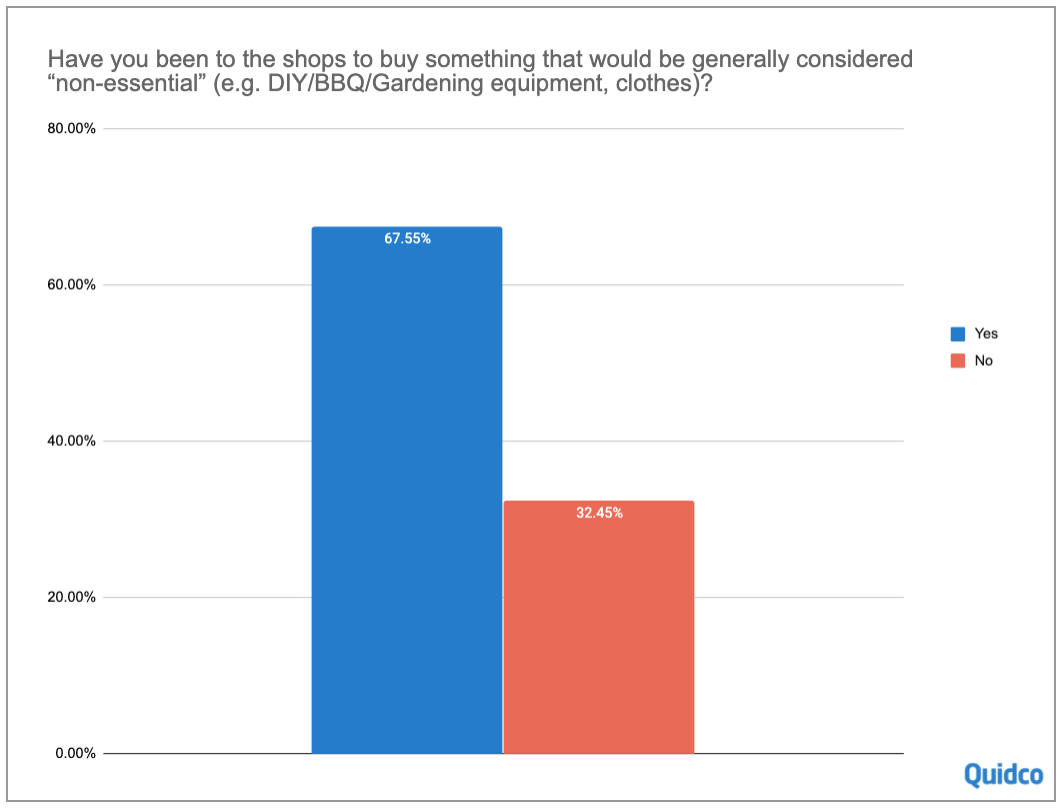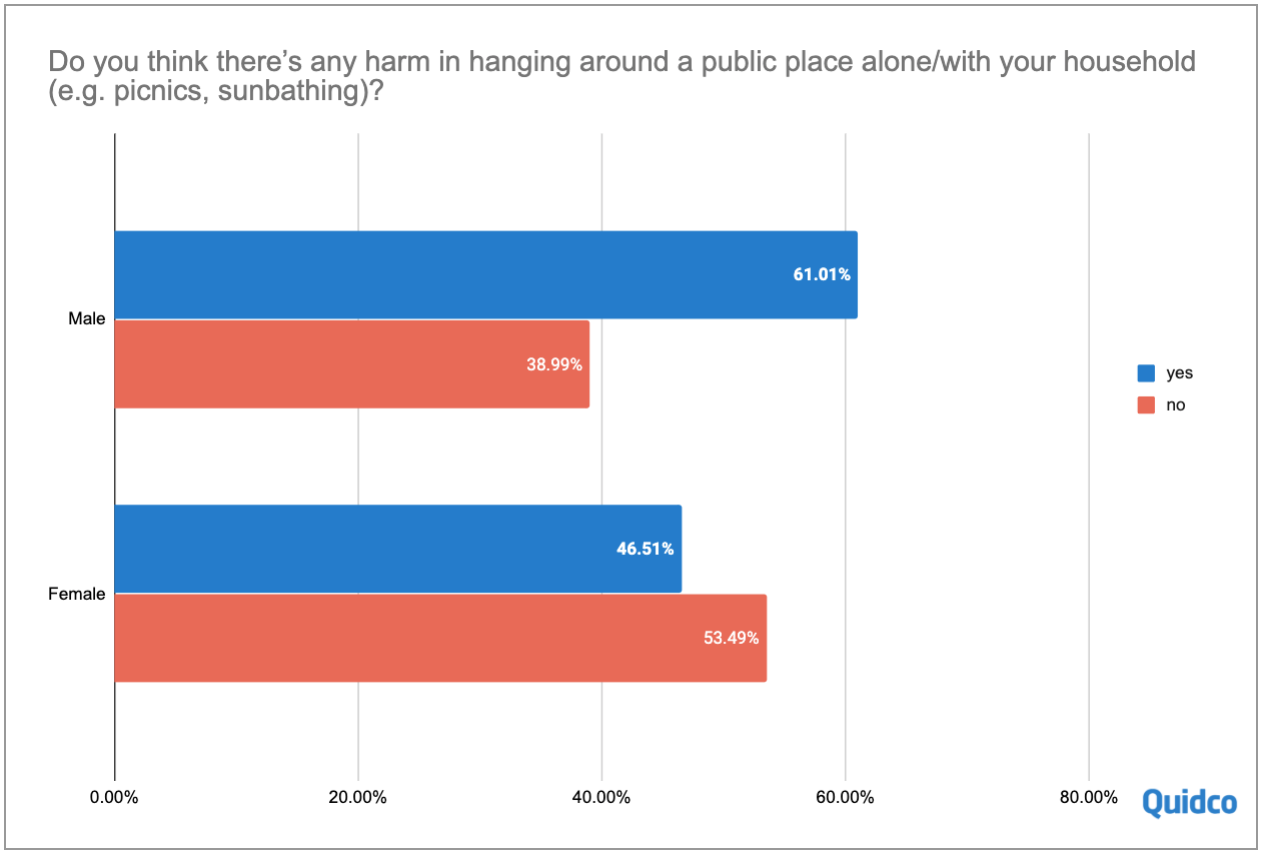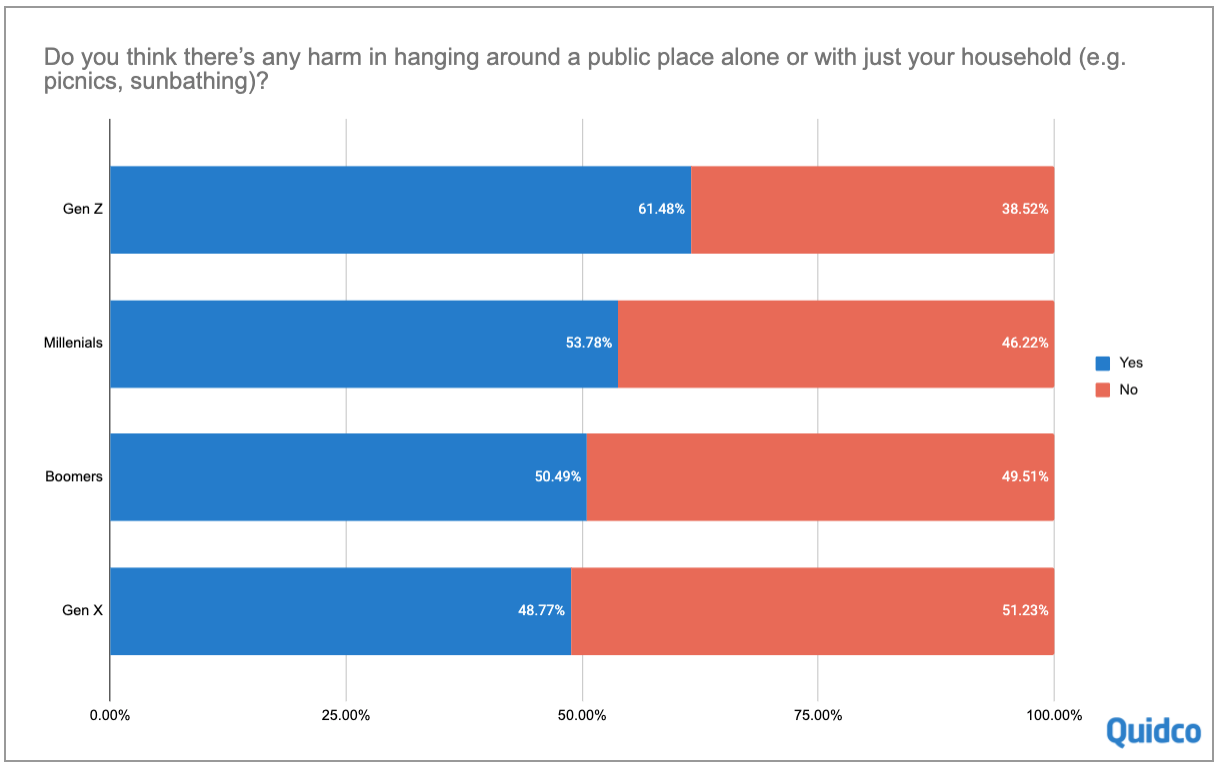Some of us are strict quarantiners, some are flounderers of the rules. There's seemingly no in-between
The gist
- Nearly half of Brits don’t see an issue with sunbathing in public places
- 64% of us have had arguments with friends or family about staying at home
- Women more likely to bend lockdown rules and then report rule-breaking
- Almost a quarter of Brits wouldn’t think twice about reporting rule-breaking
- Nearly 70% admit to going shopping for 'non-essential' items
It’s the umpteenth day of the UK lockdown. Lots of us are getting through this by sticking it out, taking up creative pastimes, exercising like there’s no tomorrow, homeschooling, and becoming armchair quiz masters. Sometimes it’s fun. A lot of the time it’s boring. But for the moment, it is what it is, and it's keeping us safe.
It’s a stressful time, but at least this worldwide challenge is bringing us all together, unifying the nation.
Well, that’s not entirely true. Our research showed us that there’s something of a schism in the UK public when it comes to abiding by the lockdown rules. Whereas some of us are strict quarantiners, others aren't being so stringent.
The split between the British people has led to something of a nationwide quarrel. On the one side are people going out for the non-essential items and sunbathes in the park. On the other are those striving to keep the lockdown rules locked down — and even telling on their neighbours for breaking them. It’s unsurprising then, that this has manifested in over 60% of people admitting they've had arguments with friends or family members about staying home during quarantine.
This was seen recently in London when the authorities closed down Brockwell Park due to too many people using it to sunbathe instead of social distancing. The reactions and arguments that could be seen on Twitter following the decision show the split in public opinion.
Despite clear advice, over 3000 people spent today in Brockwell Park, many of them sunbathing or in large groups. This is unacceptable. Unfortunately, the actions of a minority now means that, following police advice, Brockwell Park will be closed tomorrow. #StayHome
— Lambeth Council (@lambeth_council) April 4, 2020
Brockwell park ( approx 125 acres) taken from my window today 16.04 hrs , people with no back garden need green spaces pic.twitter.com/3SJ1GcpsJS
— Robert Harrison (@ieattothebeat) April 4, 2020
Who’s breaking the rules
Just in case you need a reminder of the rules, they are:
- Only go out for essential items
- Only go out once for exercise
- Only go out with people you’re living with
- Stay two metres away from each other.
Despite the government making it clear that it’s no longer asking us to stick to these rules, it’s telling us, most of the population are willing to break them.
Nearly 70% of those surveyed admitted they have gone out for items that are not considered essential. It appears that one of the problems with the word ‘essential’ is that it seems to have a different meaning, depending on which way you look at it.
“Buying a new BBQ was essential in my opinion. I would have gone nuts over the Easter weekend if I couldn't have put some food on in the garden,” said Mark from Bristol.

There are levels to this though. It’s one thing popping to the shop for a bottle of wine. It’s another thing entirely if you’re organising a 20-man barbecue in the park. Our attitudes towards this kind of behaviour are more uncompromising.
Battle of the sexes
Interestingly, we found that men are actually more stringent in abiding by the lockdown than women. 60% of the men surveyed believed that hanging out in public is socially irresponsible and potentially harmful. Women, on the other hand, are little more rogue in this lockdown, with less than half agreeing with the statement.
The rift between men and women’s opinions of rule-breaking has found its way into the home, with couples disagreeing on the matter.
“We have argued about a few things since lockdown started to be honest! And whether we should go out in the sun is one of them - I am a stay at home bloke," John from Woking told us.

Neighbours taking the law into their own hands
Despite having more of a laissez-faire attitude towards bending the rules, we still found that women are more likely than men to report neighbours for going out multiple times for non-essentials or coalescing in groups. Nearly 30% of women said they’d be prepared to report people for rule-breaking, compared to just over 20% of men.
On top of this, nearly a quarter of all Brits say they wouldn’t think twice about reporting rogue neighbours.
The kids are alright
You’d think that as older people are more adversely affected by the virus, they’d be more likely to adhere to the lockdown rules. Well, you’d be wrong.
Our research suggests that the younger you are, the more likely you are to consider flouting the rules dangerous and irresponsible. The youngest of us, people who fall under the Generation Z label (22 and under), are the most likely to see the dangers in ignoring social distancing. Over 61% of Gen Z agreed that hanging out in public is dangerous.
Baby Boomers (those born between 1946 and 1962), on the other hand, have a more lenient approach to the rules. Just half of this age bracket believe that disregarding social distancing is harmful.

Despite the split in opinion to lockdown rules, at Quidco, we're doing the utmost to adhere to the lockdown rules. We hope you are as well.
Sources
- Quidco commissioned eOpinion to survey 2,478 nationally representative adults in the UK in April.



